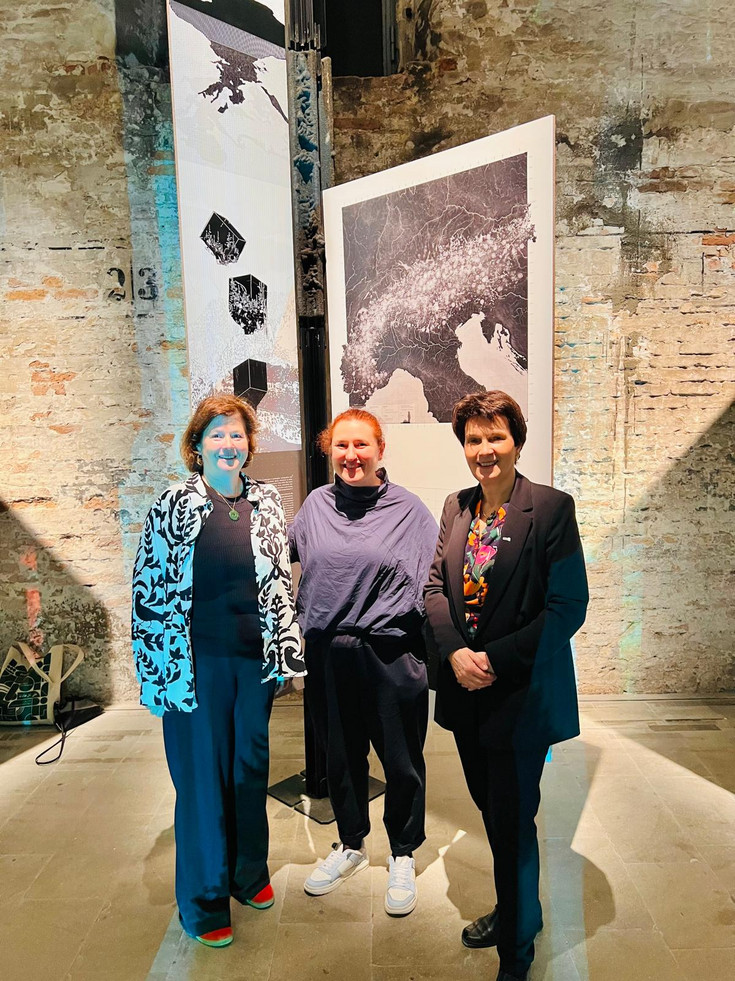09.05.2025 - Shaped by human hands: the shifting Alpine landscape

Foto © BOKU
To what extent have human exploitation and colonization processes shaped the Alpine region? Researchers at BOKU University and the Politecnico di Milano as well as designers from Openfabric office are investigating this question in their new project „Instabilites. The shifting Alpine landscape“. Their results will be presented at this year's Biennale in Venice.
As the continent’s largest mountain rage the Alps run through many European countries. They are often mistakenly regarded as static, unchanging landscapes hardly affected by human activity.
However, this ignores the extent to which exploitation and colonization processes shape and characterize the Alps. These include, for example, ski tourism, the extraction of valuable minerals, hydroelectric power generation and the increasing urbanization of valleys.
Unfolding through design the socio environmental transition
The project „Instabilites. The shifting Alpine landscape” by Emilie Stecher, Jennifer Fauster and Cecilia Furlan from the Institute of Landscape Architecture at BOKU University as well as by the colleagues from the Politecnico di Milano and Openfabric demonstrates this. From Saturday, the 10th of May, they will be exhibiting it at this year's Venice Biennale.
The team uses critical cartography and “thick mapping” - an approach in which not only geographical and physical data are used to describe an area on a map. Instead, sociological and economic changes are also depicted using sections, visual explorations and experimental new topographies.
Interdependency of socio environmental and economic transformation
The focus is on extraction and its relationship with altitude, temperature changes and habitats in the Alps. “By offering an alternative visual and conceptual framework, it seeks to inspire new reflections and research on the evolving dynamics of the Alpine landscape,” explain the researchers.
It is equally important to consider the complex role of nature in shaping the evolving ecological fabric. “Today, rising temperatures accelerate the upward shift of fragile habitats, transforming hydrological cycles, vegetation, and urban patterns,” emphasizes project lead Emilie Stecher. “By reconstructing the palimpsest of extraction processes, this work highlights how socio-natures coproduce each other.”
Scientific contacts
Emilie Stecher, MSc.
Institut für Landschaftsarchitektur
BOKU University
Email: emilie.stecher@boku.ac.at
Furlan Cecilia, Ph.D.
Institute for Landscape Architecture
BOKU University
Email: cecilia.furlan@boku.ac.at
